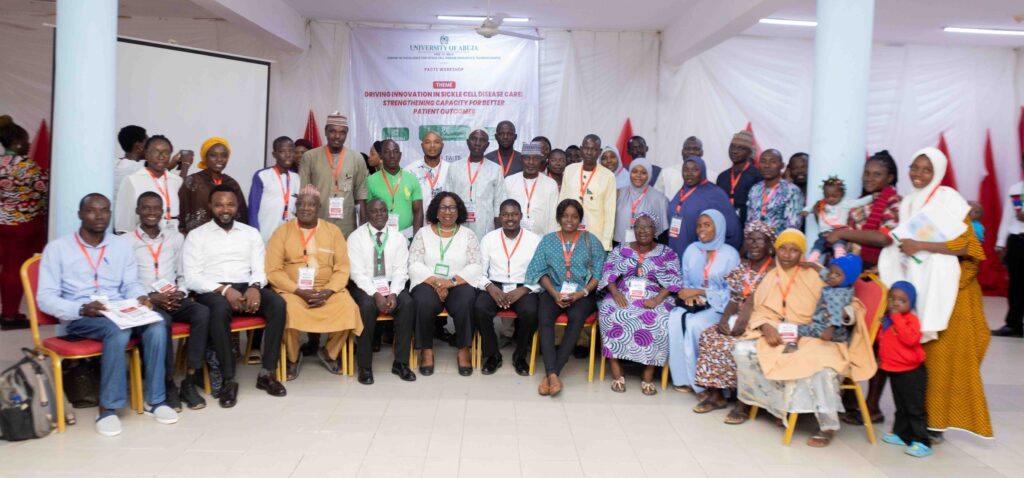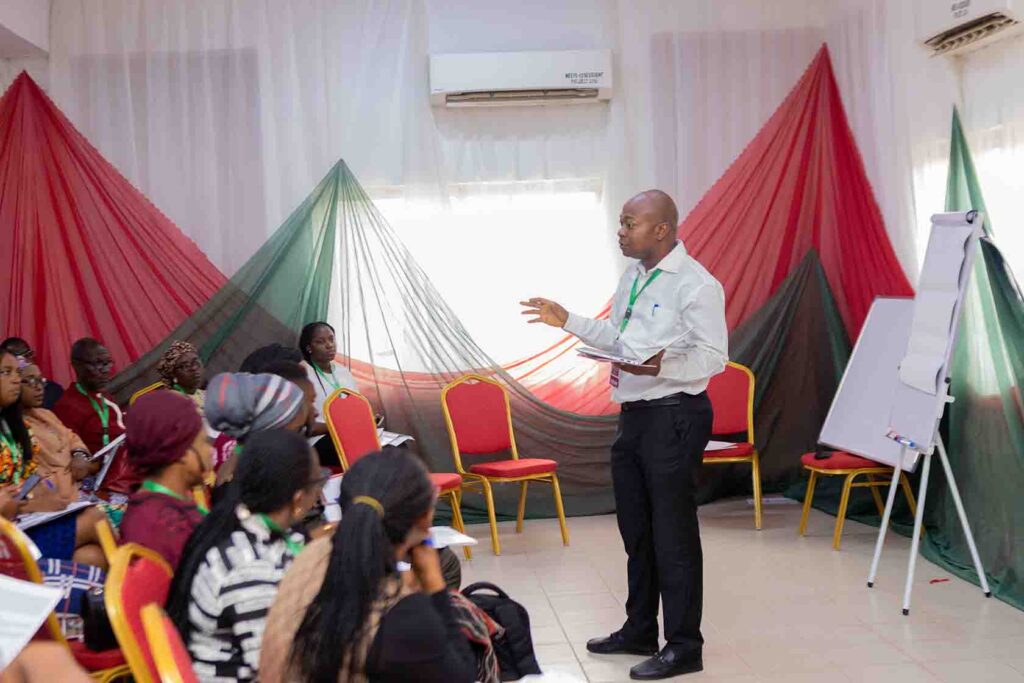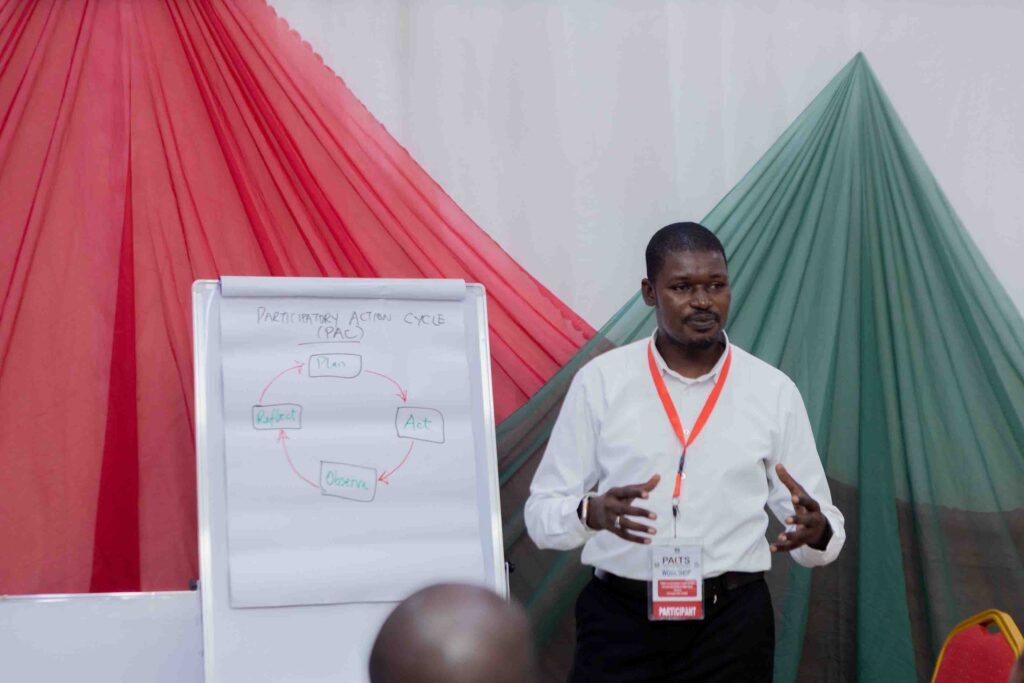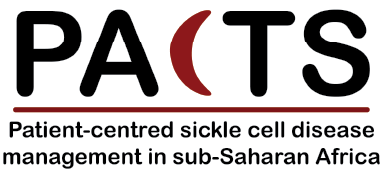Patient-Centred Sickle Cell Disease Management In Sub-Saharan Africa (PACTS) Workshop
Nigerian Capacity Strengthening Workshop Report
Theme: Driving Innovation in Sickle Cell Care: Strengthening Capacity for Better Patient Outcome.
Venue: University of Abuja Main Campus, Abuja, Nigeria.
Date: August 23rd, 2024.
Time: 10:00am – 3:00pm
PAC Lead: Dr Imam Abubakar.
SBA Lead: Dr Etuk Eno-Abasi Etim.
Facilitator: Dr Isa Hezekiah.

Sites involved in this training
- UATH – University of Abuja Teaching Hospital
- NHA- National Hospital Abuja
- NGH- Nyanya General Hospital
- GTC- Gwagwalada Town Clinic
- TUNG- Tungan Maje Primary Health Care
- DUTM- Dutse Makaranta Primary Health Care
The workshop was well attended by members of the Standard-Based Audit (SBA) team and the Participatory Action Cycle (PAC) from the six participating sites. Also in attendance were Dr. Motto Nganda from the Liverpool School of Tropical Medicine, members of the PACTS Nigeria team, CESRTA staff, and members of the university community.
The SBA members consisted of healthcare professionals, including Doctors, Pharmacists, Nurses, Medical Laboratory Scientists, Community Health Extension Workers (CHEWs), and Community Health Officers (CHOs). The PAC members included sickle cell patients, parents or carers of SCD patients, community leaders, ward focal leads, and representatives from their respective communities.
All participants of the workshop were registered at the entrance and each person given a file jacket containing a jotter, pen, agenda, a tag and an SBA training manual or PAC training manual depending on the group they belonged to.
Professor Obiageli E. Nnodu, Principal Investigator of PACTS Nigeria, opened the workshop with inspiring remarks. She provided a comprehensive overview of the PACTS project, emphasizing its potential to transform SCD management across sub-Saharan Africa.
The workshop was structured around two key components:
- Participatory Action Circles (PAC): Community members engaged in identifying critical challenges in SCD care. They developed action plans addressing issues such as awareness, follow-up care, and treatment adherence. This grassroots approach ensures that solutions are tailored to community needs.
- Standard-Based Audits (SBA): Healthcare professionals focused on enhancing specific standards of care. They tackled key areas including Hydroxyurea prescriptions, Penicillin prophylaxis, and blood transfusion practices. This process aims to standardize and improve the quality of care across facilities.
Each team collaborated to create problem trees, which helped them visualise challenges and their potential solutions.
The workshop yielded several significant outcomes:
- Participants gained a deeper understanding of patient-centered SCD management.
- Each site developed specific action plans tailored to their unique challenges.
- The workshop strengthened collaboration between healthcare providers and community members, fostering a more holistic approach to SCD care.
Moving forward, participants will implement their action plans, focusing on:
- Raising community awareness about SCD
- Improving treatment adherence among patients
- Enhancing healthcare provider skills and knowledge
- Conducting regular follow-ups to track progress and adjust strategies as needed
This workshop marks a significant milestone in improving SCD care in Nigeria. By fostering collaboration between healthcare providers and communities, PACTS is paving the way for innovative, patient-centered approaches to managing sickle cell disease.




About us
Twitter Feeds
Copyright © 2024 CESRTA. All rights reserved.

